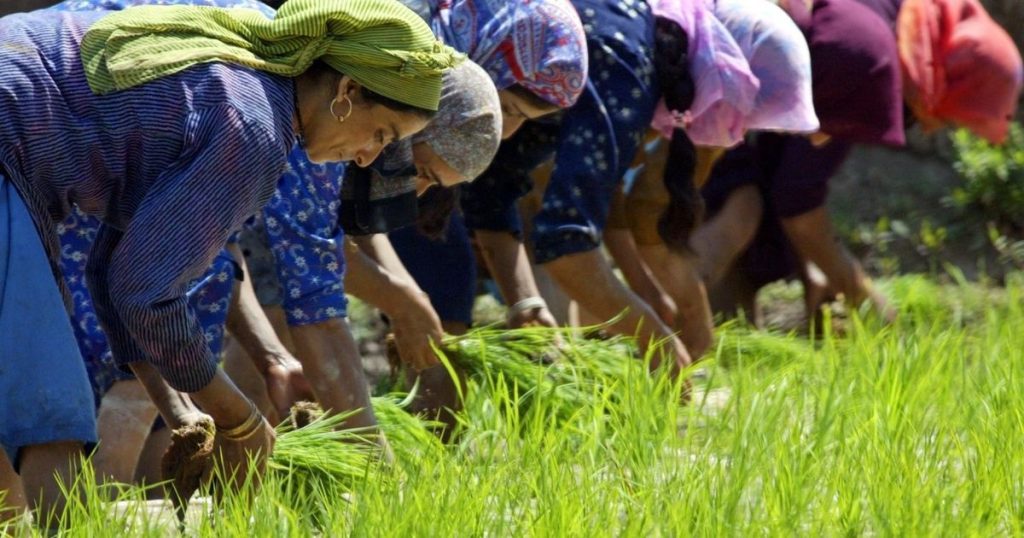Rice is one of the world’s most vital crops, and plays a crucial role in the agrarian landscape of Kashmir. Rice farming has long been practiced in Kashmir, which is recognized for its fertile valleys.
This region, known for its mesmerizing natural beauty and diverse farming traditions, finds its agricultural heart in the cultivation of rice. However, beneath the scenic vistas lie unique challenges and promising prospects that shape the destiny of Kashmir’s rice growers. This article sheds light on the hurdles faced by these farmers and explores the pathways to growth and development within the rice industry.
Climate Challenges and Variety Selection
Kashmir’s climate, characterized by harsh winters and short summers, poses a formidable obstacle to rice farming. With a limited growing season, the choice of early-maturing rice varieties becomes paramount. Unpredictable weather patterns, like untimely rainfall or early frost, loom as constant threats to crop yields. To combat these challenges, farmers must judiciously select rice varieties and employ effective crop management strategies.
Land Scarcity and Fragmentation
The scarcity and fragmentation of arable land in Kashmir present another roadblock for rice growers. Urban expansion and population growth have encroached upon available farmland. Small landholdings constrain rice production scale and hinder the adoption of modern farming practices. To tackle this issue, promoting cooperative farming initiatives and encouraging land consolidation can boost productivity and efficiency.
Water Management
Blessed with a vast network of rivers, lakes, and streams, water management is pivotal to Kashmir’s rice farming. However, water scarcity during the growing season, attributed to diminishing glaciers and erratic precipitation, has emerged as a pressing concern. Modern irrigation methods like drip and sprinkler systems hold the key to optimizing water usage and mitigating scarcity’s impact. Adopting water-efficient practices and developing water storage infrastructure are vital steps towards sustainable water management.
Market Access and Value Chain
Access to fair and reliable markets is essential for the economic viability of rice farming in Kashmir. Weak market linkages and limited processing and storage facilities constrain farmers’ profit potential. Strengthening the rice value chain through farmer cooperatives, improved post-harvest infrastructure, and efficient market information dissemination can empower farmers and create better market opportunities.
Technology and Innovation
Embracing technological advancements and innovative farming practices can revolutionize rice production in Kashmir. Precision agriculture techniques, remote sensing, and drone technology can optimize resource utilization, crop monitoring, and pest management. Furthermore, investing in research and development for climate-resilient rice varieties can help farmers adapt to changing weather patterns.
Despite the myriad challenges, opportunities for growth and development abound within Kashmir’s rice industry. Addressing climate constraints, land scarcity, water management, market access, and technological innovation is essential. Government support, including policies, subsidies, and technical assistance, alongside farmer empowerment initiatives, will play a pivotal role in transforming rice farming in Kashmir. With concerted efforts, these challenges can be transformed into opportunities, ensuring a sustainable and prosperous future for rice cultivation in the region.


